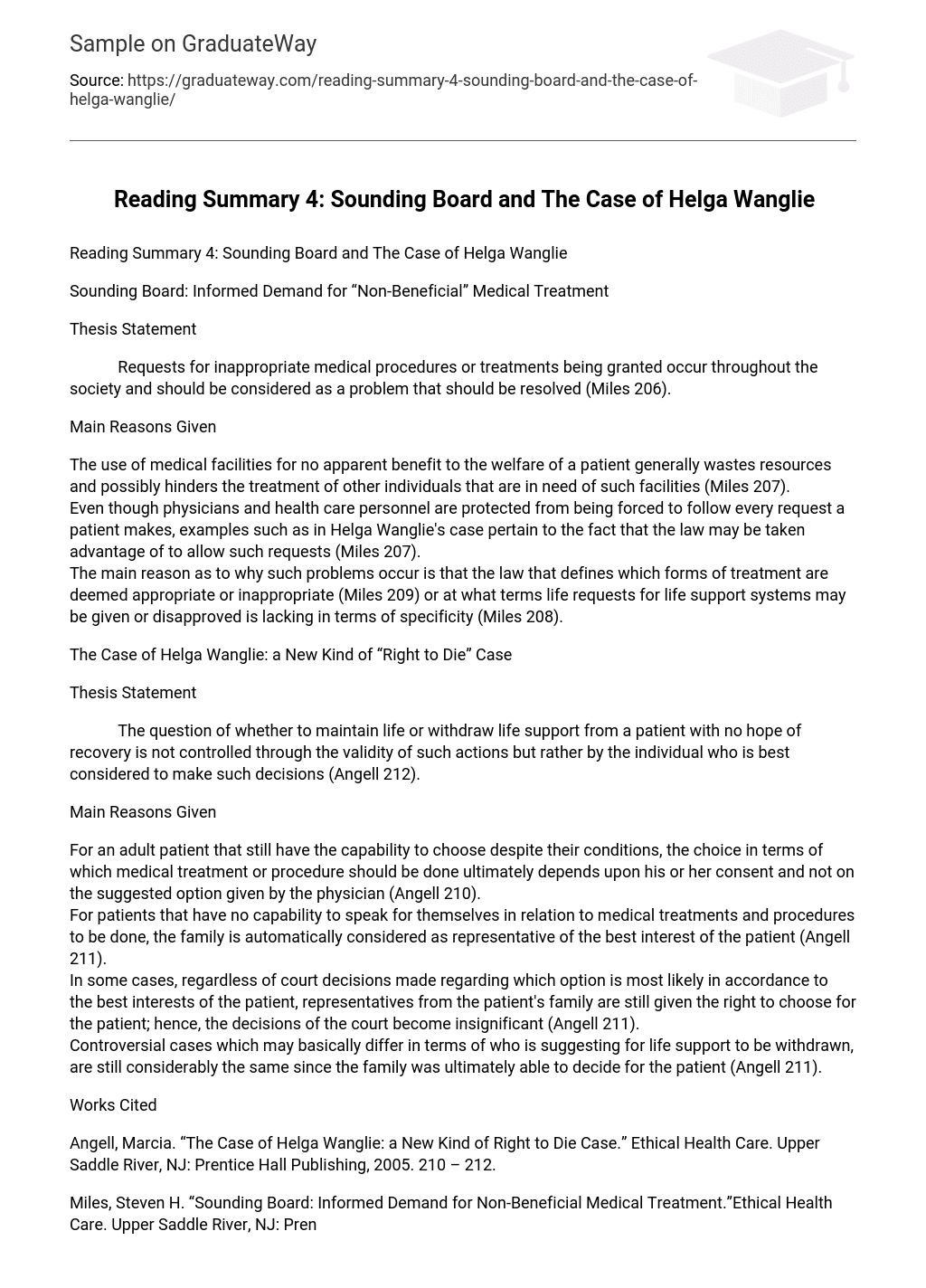Sounding Board: Informed Demand for “Non-Beneficial” Medical Treatment
Thesis Statement
Requests for inappropriate medical procedures or treatments being granted occur throughout the society and should be considered as a problem that should be resolved (Miles 206).
Main Reasons Given
The use of medical facilities for no apparent benefit to the welfare of a patient generally wastes resources and possibly hinders the treatment of other individuals that are in need of such facilities (Miles 207).
Even though physicians and health care personnel are protected from being forced to follow every request a patient makes, examples such as in Helga Wanglie’s case pertain to the fact that the law may be taken advantage of to allow such requests (Miles 207).
The main reason as to why such problems occur is that the law that defines which forms of treatment are deemed appropriate or inappropriate (Miles 209) or at what terms life requests for life support systems may be given or disapproved is lacking in terms of specificity (Miles 208).
The Case of Helga Wanglie: a New Kind of “Right to Die” Case
Thesis Statement
The question of whether to maintain life or withdraw life support from a patient with no hope of recovery is not controlled through the validity of such actions but rather by the individual who is best considered to make such decisions (Angell 212).
Main Reasons Given
For an adult patient that still have the capability to choose despite their conditions, the choice in terms of which medical treatment or procedure should be done ultimately depends upon his or her consent and not on the suggested option given by the physician (Angell 210).
For patients that have no capability to speak for themselves in relation to medical treatments and procedures to be done, the family is automatically considered as representative of the best interest of the patient (Angell 211).
In some cases, regardless of court decisions made regarding which option is most likely in accordance to the best interests of the patient, representatives from the patient’s family are still given the right to choose for the patient; hence, the decisions of the court become insignificant (Angell 211).
Controversial cases which may basically differ in terms of who is suggesting for life support to be withdrawn, are still considerably the same since the family was ultimately able to decide for the patient (Angell 211).
Works Cited
Angell, Marcia. “The Case of Helga Wanglie: a New Kind of Right to Die Case.” Ethical Health Care. Upper Saddle River, NJ: Prentice Hall Publishing, 2005. 210 – 212.
Miles, Steven H. “Sounding Board: Informed Demand for Non-Beneficial Medical Treatment.”Ethical Health Care. Upper Saddle River, NJ: Prentice Hall Publishing, 2005. 206 – 209.





